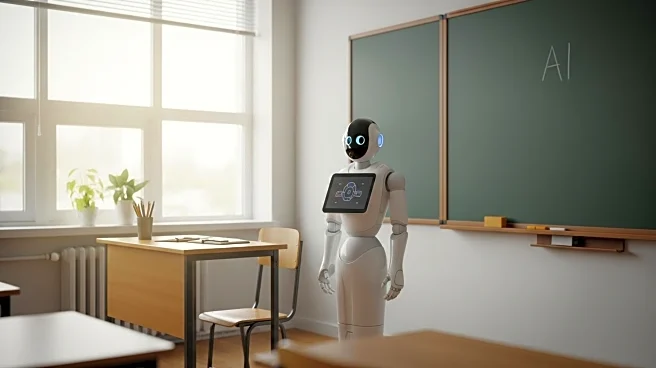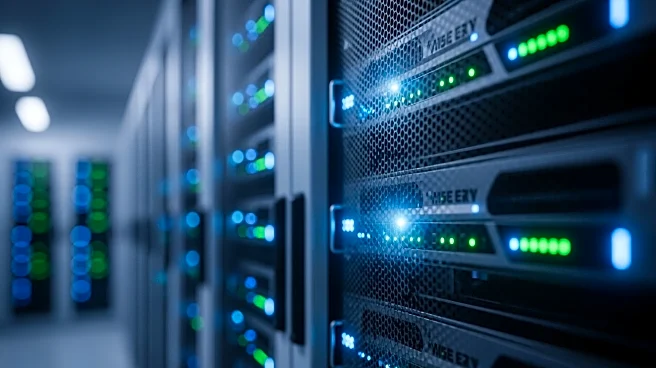What's Happening?
Educators are grappling with the integration of artificial intelligence (AI) in K-12 schools, seeking a balanced approach that avoids overreliance on AI systems while leveraging their potential benefits. Concerns have been raised about the dehumanizing effects of AI, with fears that it could diminish empathy and critical thinking skills among students. Some educators advocate for a cautious approach, emphasizing the importance of teaching students to critically evaluate AI-generated content. Kristina Peterson, an English teacher at Exeter High School, uses AI tools to help students brainstorm and identify errors in AI-generated summaries, fostering skepticism and critical thinking. The debate extends to the broader educational community, with discussions on how AI can be used to tackle complex societal problems and enhance learning experiences. Schools are encouraged to experiment with AI in meaningful ways, balancing innovation with ethical considerations.
Why It's Important?
The integration of AI in education is significant as it presents both opportunities and challenges for the future workforce. Teaching students to critically engage with AI tools can prepare them for a technology-driven world, enhancing their problem-solving and critical-thinking skills. However, there is a risk of widening the skill gap if AI is not integrated thoughtfully, potentially disadvantaging students who lack access to guided AI learning experiences. The debate highlights the need for schools to develop policies that balance innovation with ethical considerations, ensuring that AI enhances rather than detracts from educational outcomes. As AI becomes increasingly prevalent, educators must navigate its complexities to prepare students for future challenges.
What's Next?
Schools and districts are expected to continue exploring AI integration, with some already establishing guidelines for its use. The Woodstock Union Middle School and High School in Vermont, for example, has implemented guidelines allowing AI use for students aged 13 and older with parental permission. These guidelines aim to educate students on the risks and benefits of AI, promoting responsible and creative use. As AI technology evolves, schools will likely update their policies to reflect new advancements, fostering a culture of experimentation and learning. Educators are encouraged to share insights and lessons learned from AI integration, contributing to a broader understanding of its impact on education.
Beyond the Headlines
The ethical implications of AI in education are profound, raising questions about data privacy, the role of teachers, and the potential for AI to amplify existing inequalities. The concept of 'containment,' as articulated by Microsoft AI CEO Mustafa Suleyman, suggests steering AI use towards enhancing student learning while protecting data privacy. Schools must consider developmentally appropriate uses of AI, ensuring that younger students do not overly trust AI-generated information. The broader societal impact of AI integration in education could influence workforce readiness and societal problem-solving capabilities, making it a critical area for ongoing research and policy development.









